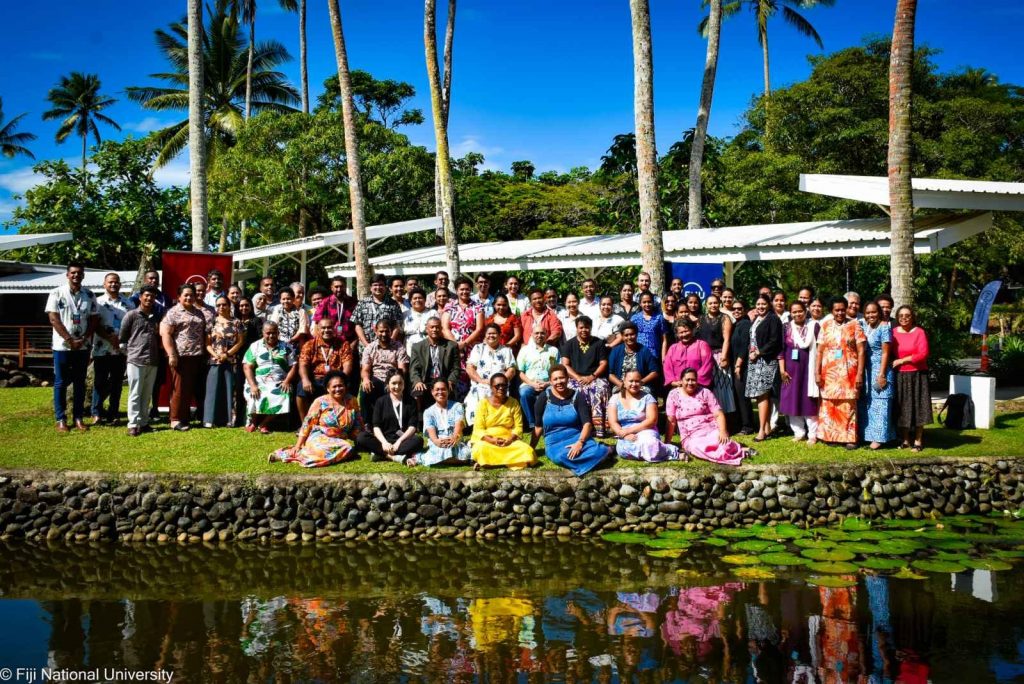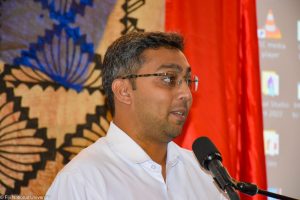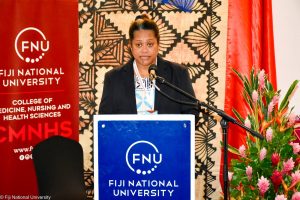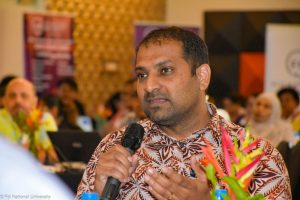

Participants at the Symposium at the Pearl Resort.
Artificial intelligence (AI) is rapidly transforming the medical landscape, presenting a powerful set of tools with the potential to revolutionise healthcare delivery.
This was one of the several topics discussed at the Fiji National University’s College of Medicine, Nursing, and Health Sciences (CMNHS) 2024 Health Professionals Education Symposium held at the Pearl Resort in Pacific Harbour.
Artificial intelligence’s integration necessitates a nuanced approach that acknowledges both the immense benefits and the inherent challenges.

CMNHS Assistant Professor from the Department of Oral Rehabilitation Hemanth Lakshmikantha.
CMNHS Assistant Professor from the Department of Oral Rehabilitation Hemanth Lakshmikantha said AI in the medical field represents a transformative leap forward, offering the vast potential to enhance patient care, streamline operations, and advance medical research.
“Its ability to assist in early diagnosis, predict patient outcomes, and personalise treatment plans significantly improves efficiency and accuracy in healthcare. The advantages are substantial: AI can analyse medical images and data with remarkable precision, identify patterns missed by the human eye, and tailor treatments based on individual patient profiles, leading to more effective therapies,” Dr Lakshmikantha said.
“Additionally, AI streamlines administrative tasks, reducing the burden on healthcare providers, and employs predictive analytics to foresee disease outbreaks and patient deterioration, enabling proactive interventions.”
Critical thinking and vigilance are essential for preventing over-reliance and ensuring that AI serves as a tool for improvement, not a substitute, in medical practice.
“By perpetuating biases in the data they train on, AI systems have the potential to exacerbate health inequalities. It is critical to ensure that AI augments rather than replaces the human touch central to healthcare, preserving ethical standards and empathy in patient care.
“As we embrace AI, we must do so responsibly, fostering critical thinking and vigilance in its application to safeguard against over-reliance and ensure it serves as a tool for enhancement rather than replacement in the practice of medicine.”

CMNHS Acting Dean Dr Amelia Turagabeci.
CMNHS Acting Dean Dr Amelia Turagabeci said that Artificial Intelligence is involved, and people need to learn to adapt to the changes.
“Our students are born in the technological era. It is an interesting tool as it has accessibility and can help the students learn, but it takes away the critical thinking from our students,” Dr Turagabeci said.
“As long as they rely on AI software to write for them, it affects the critical information they are trying to disseminate or share because the machine is thinking for them and not them. AI has its own biases as we heard in the discussion”

Raymond Keshwan.
CMNHS Head of School Health Sciences Raymond Keshwan has described AI as a ‘copycat’.
“The successful integration of artificial intelligence (AI) in healthcare requires careful consideration of data privacy. Using extensive patient datasets necessitates robust safeguards to ensure confidentiality and security. According to Keshwan, ChatGPT or similar applications can facilitate the discovery of new knowledge, not create it, leading to the reproduction of content that is only existing and sometimes outdated, lacking originality.
“This is more like a ‘copy-cat’ for me, where you only get the information that is available from existing data – a mere replication of what already is and not new. AI does support our decision-making by improving efficiency, but it must be used carefully because it is not human and lacks the ethical and contextual judgments that only we can make.”
Participant Ajnesh Avinit Prasad said the upcoming standard of artificial intelligence is very intriguing.
“The presenters have emphasised that AI is here to stay, and we as academics must prepare ourselves to embrace it.” We need to tailor our curriculum and policy to use AI as a useful tool for learning and teaching and research without compromising our learning outcomes and ethics”